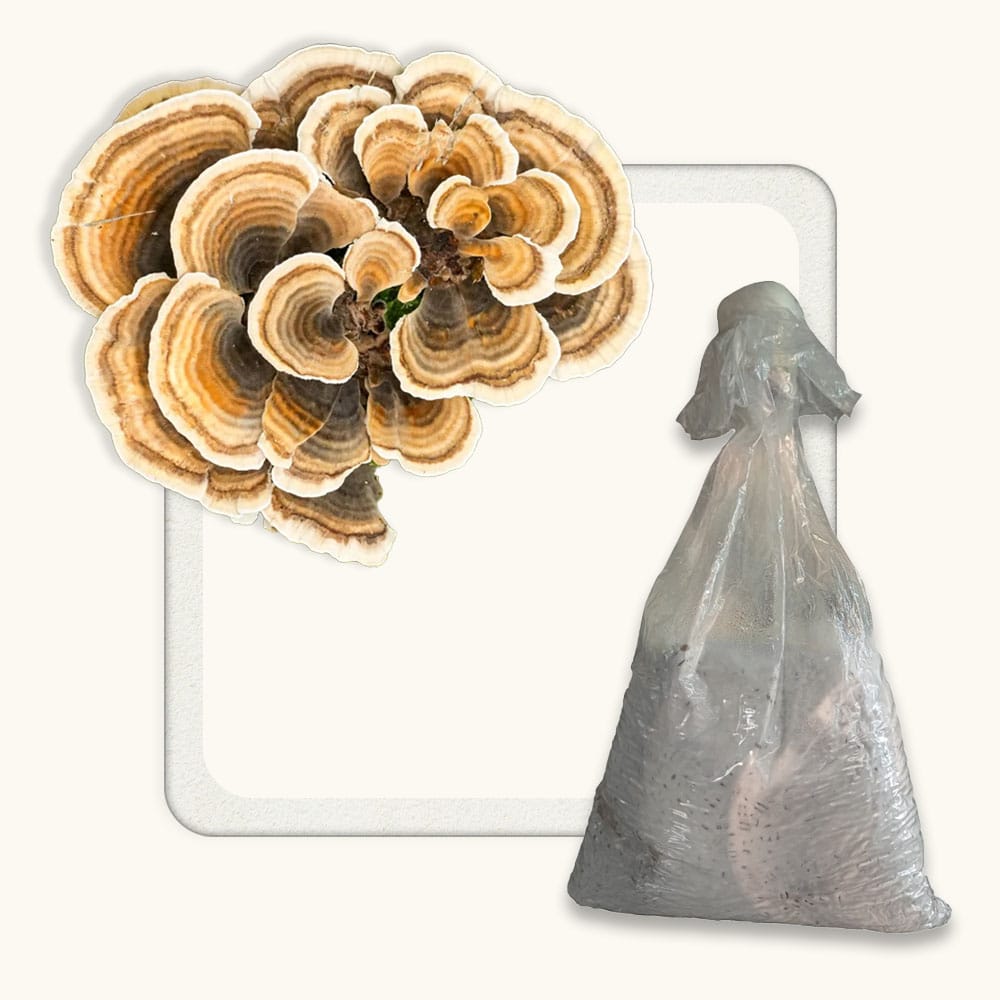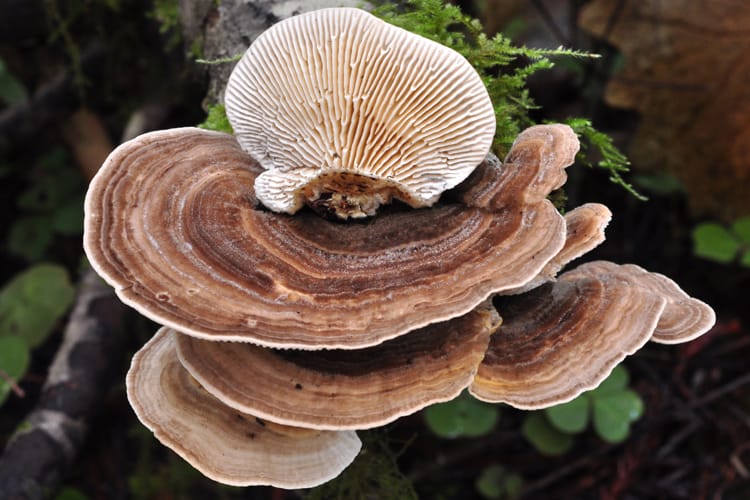Turkey Tail (Trametes Versicolor) is a striking and widely studied medicinal mushroom known for its colorful, fan-shaped appearance resembling the tail feathers of a turkey. Found on decaying hardwood trees across the world, Turkey Tail mushrooms have been used in traditional medicine systems for centuries, especially in Chinese and Japanese cultures.
Turkey Tail is most celebrated for its immune-boosting properties. It contains powerful polysaccharopeptides—PSK (polysaccharide K) and PSP (polysaccharide peptide)—which are known to support immune function and are even used as complementary therapies in cancer treatments in some countries. This mushroom is also rich in antioxidants, which help reduce inflammation and support overall wellness.
Unlike culinary mushrooms, Turkey Tail is tough and leathery, so it’s usually consumed in powdered form, capsules, or as a tea. It’s not only valued for health benefits but also for its ability to break down tough plant materials, playing an essential role in forest ecosystems as a decomposer.




